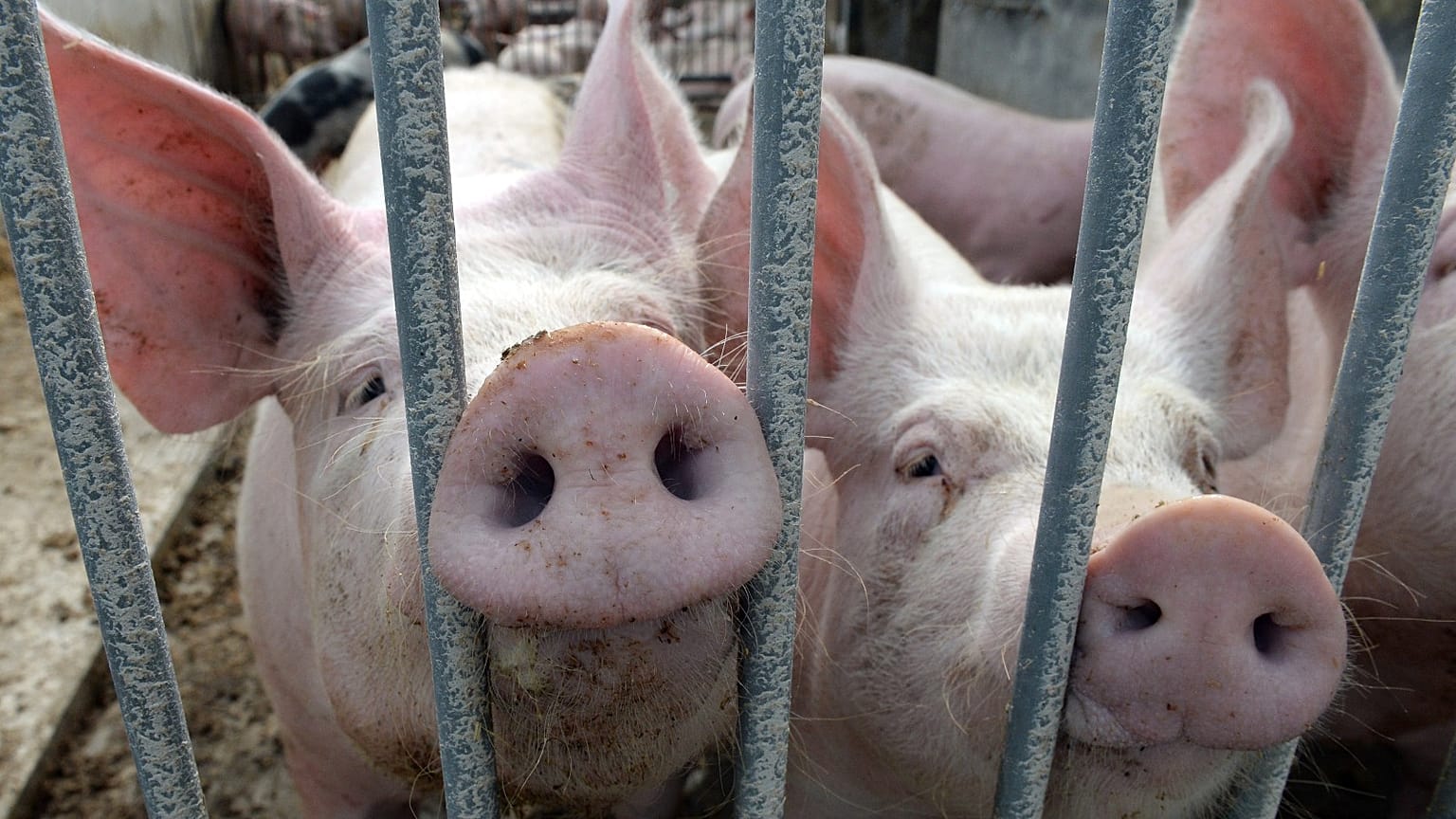UK authorities said they had detected a new strain of swine flu in a human.
A new strain of swine flu was detected in a human in the UK, the country's health security agency said.
The strain of Influenza A (H1N2)v is similar to viruses currently circulating in pigs in the UK but is different from recent human cases of the virus.
The person who had this flu strain experienced mild illness and has fully recovered, the UK Health Security Agency (UKHSA) said.
The case was detected as part of routine flu surveillance, but the source of the infection remains under investigation.
Influenza type A viruses are established in many animal species but can cause global pandemics, according to the World Health Organization (WHO).
Risk factors for swine flu include contact with pigs or with their environment.
"Sequencing so far indicates some genetic differences to previous swine flu viruses that have spilled over to humans," said Punam Mangtani a professor of epidemiology at the London School of Hygiene & Tropical Medicine.
"It’s unusual to pick up such viruses, hence the need to check contacts and improve surveillance in that area to check whether there are more cases".
Reporting cases of swine flu
"We know that some diseases of animals can be transferred to humans – which is why high standards of animal health, welfare and biosecurity are so important," Christine Middlemiss, the UK's chief veterinary officer, said in a statement.
"Through our animal and human surveillance systems, we work together to protect everyone... Pig keepers must also report any suspicion of swine flu in their herds to their local vet immediately," she added.
There have been a total of 50 human cases of influenza A(H1N2)v globally since 2005, according to the UKHSA, but none of them are "related genetically to this strain".
A 2009 pandemic was caused by an influenza A(H1N1) virus which was previously referred to as "swine flu". It is now a seasonal virus included in influenza vaccines.
A recent analysis of the 2009 H1N1 virus found that it had also passed from humans to pigs nearly 400 times since the pandemic.
This article has been updated to include comments from an expert.


















